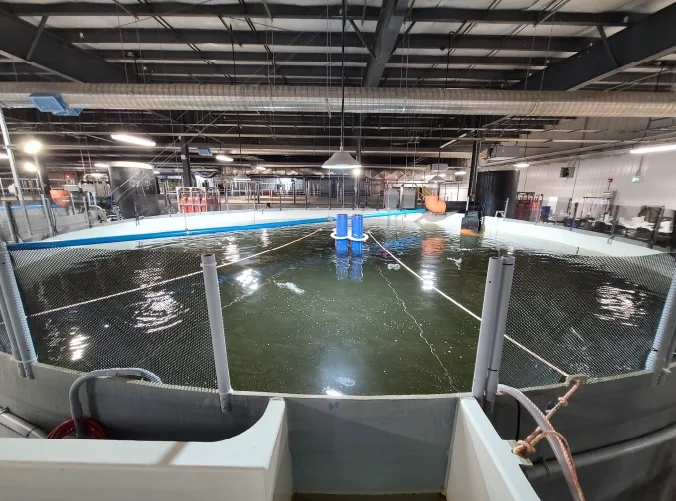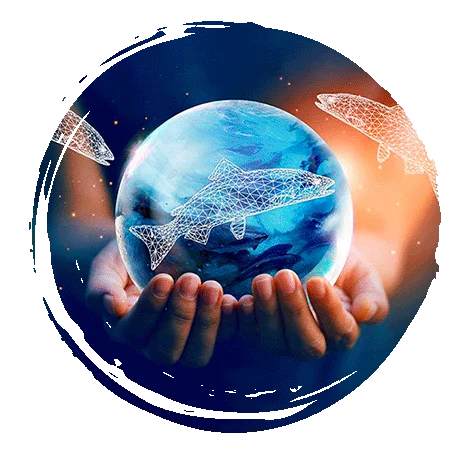Aquaculture
The establishment of land-based farming for premium Atlantic Salmon in Brazil marks a significant and historic development in aquaculture, particularly for a species traditionally farmed in colder waters, such as in Norway, Chile, and Canada. This shift towards inland aquaculture represents a breakthrough in technology, sustainability, and the expansion of high-value food production to regions not previously associated with such endeavors.

Land-Based Salmon:
A Sustainable Solution

The development of land-based salmon farming relies on cutting-edge RAS technology. This system allows for controlled water quality and temperature, which is essential for farming species like Atlantic salmon in Brazil’s warmer climate. RAS minimizes water usage and provides optimal conditions, ensuring the salmon thrive in an environment that mimics their natural cold-water habitat.

Traditional salmon farming at sea often faces criticism for environmental issues such as ocean pollution, habitat disruption and the spread of disease. Land-based farming avoids these risks by isolating the salmon from criticism and natural ecosystems.
The quality of the process points directly to sustainability. We might also mention that the various cutting-edge technologies that will be implemented meet the premise of minimize the impact and increasing benefits, including GSE and wellfare.

